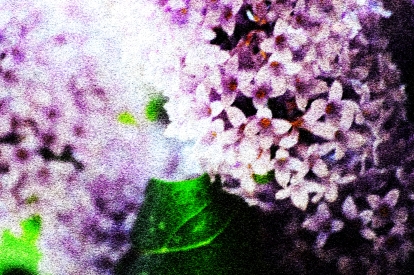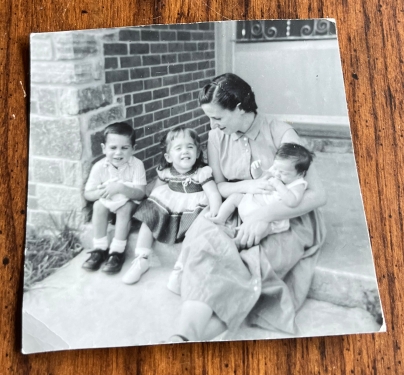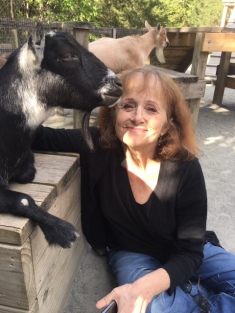
Kintsugi
by Beth Copeland
Mother’s Japanese friends
send cards she forgets
to open—prints of blond
birds flying
over turquoise waves, pine branches
burdened with snow. Her mailbox,
stuffed with letters
and junk. I slice
into an envelope and pluck a handwritten
note from Kinko-san: I have not heard
from you. I am worried. You are so
old. Mother snorts, She’s
almost as old as I am!
and we laugh
at what’s lost
in translation. She forgets bills,
to brush her teeth or swallow
her thyroid pills and Lipitor
but remembers Kinko-san
from long ago. Should I write to say you’re
okay? I’ll do it
later, but she won’t. She stares
at a maple for hours when I’m
not here, her hair a corona
of uncombed
dandelion seeds. Should I
laugh or cry? Like a broken
bowl mended with molten
gold, she’s more
beautiful than before. I hold
her in the heart
of my heart
where she’s whole.
Originally published in the author’s collection, Blue Honey, recipient of the 2017 Dogfish Head Poetry Prize, The Broadkill River Press, 2017.
PHOTO: Teacup with gold streaks exhibiting Kintsugi repair (Vlad islavovich, photographer). Kintsugi celebrates breakage and repair as part of the history of an object, rather than something to disguise.
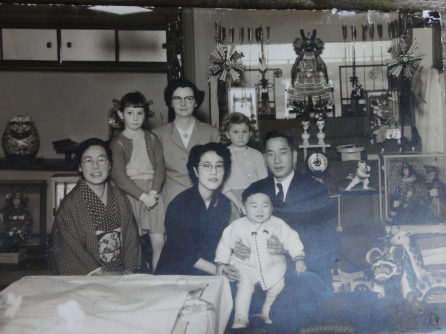
NOTE FROM THE AUTHOR: I wrote “Kintsugi” when my mother was in an assisted living home because she had short-term memory loss. She would forget to check her mail, and one day we found a card from Kinko-san, a woman she knew when she and my father were serving as missionaries in Japan during the 1950s. She and Kinko-san had corresponded with each other for 50 years.
PHOTO: The author with her mother Louise, her older sister Joy, and Kinko-san and her family on the occasion of Kinko-san’s son’s first birthday.
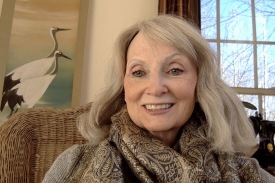
ABOUT THE AUTHOR: Beth Copeland is the author of Selfie with Cherry (Glass Lyre Press, 2022); Blue Honey, 2017 Dogfish Head Poetry Prize winner; Transcendental Telemarketer (BlazeVOX, 2012); and Traveling through Glass, 1999 Bright Hill Press Poetry Book Award winner. Shibori Blue: Thirty-six Views of The Peak, a collection of her original photographs and poems, is forthcoming from Redhawk Press.

